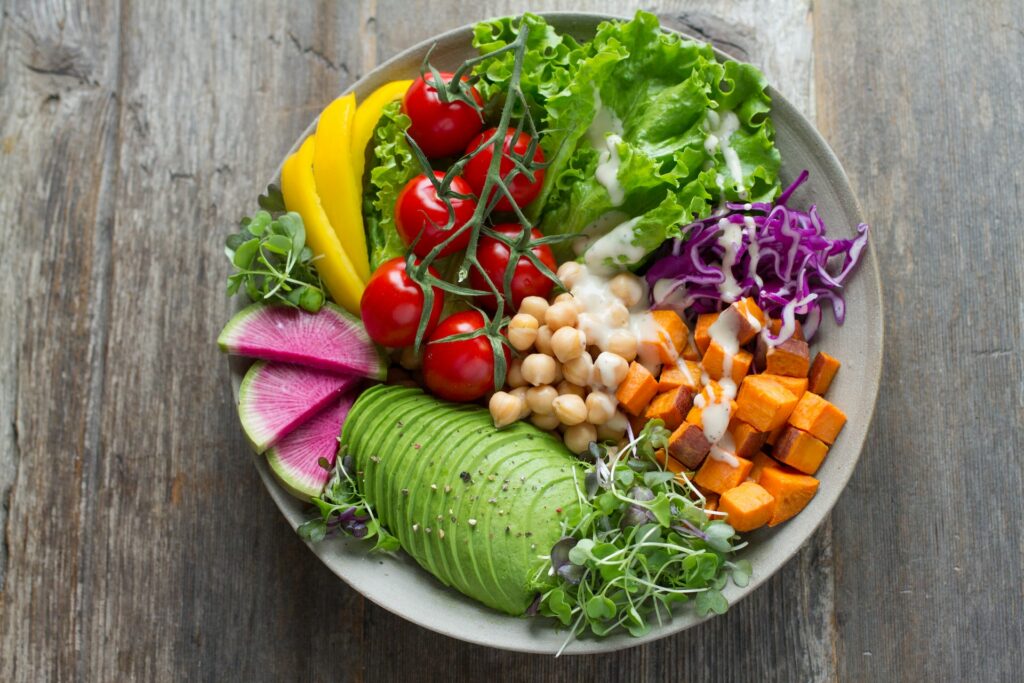The foods that we consume are important. They provide the energy needed to remain active and sustain our lives. But not all food is created equal. Some foods are healthier than others, and when you’re sick, eating these foods can ease symptoms and speed up recovery.
Foods that contain certain nutrients support the immune system. This enables the body to fight illnesses efficiently, relieving uncomfortable symptoms and speeding up the healing process. Of course, eating healthy foods regularly also helps to prevent illness in the first place.
Here are 13 great foods to eat when you’re sick…
Chicken Soup

Hot chicken soup (there are lots of good recipes online) is delicious and easy to eat. It’s also great for relieving cold and flu symptoms, keeping the body hydrated, and loading it with illness-fighting nutrients.
Chicken soup provides fluids, calories, protein, vitamins, and minerals. It blocks neutrophil activity, reducing coughing and congestion, and its cysteine content breaks up mucus and reduces inflammation.
Broth

Broths, like chicken soup, are a tasty and nutritious way to hydrate the body when you’re sick. They are often excellent sources of vitamins and minerals like magnesium, folate, calcium, and phosphorous.
Apart from providing important nutrients that can relieve typical cold and flu symptoms and speed up illness recovery, hot broths release steam that may act as a natural decongestant.
Tea

The steam from hot tea can have the same effect as that of soups and broths, helping to clear mucus from the sinuses. Sipping on tea also keeps the body hydrated, despite the caffeine content in some teas.
In addition, teas contain polyphenols that act as antioxidants and have anti-inflammatory, antiviral, and antibacterial properties. Black tea, green tea, and hibiscus tea are good options when you’re sick.
Leafy Greens

Leafy green veggies (kale, spinach, romaine lettuce, etc.) are rich in fiber, vitamins, and minerals, which your body needs for recovery. They are particularly high in folate and vitamins A, C, and K.
Dark green leafy vegetables also have antibacterial properties and contain healthy plant compounds that combat inflammation and produce antioxidant effects to prevent cell damage.
Spicy Foods

Capsaicin, the active component in chili peppers that makes spicy foods hot, can relieve pain. It can also make you less sensitive to the irritation that causes coughing, according to a recent study.
Another benefit of capsaicin is relief from nasal congestion. It breaks up mucus and clears out the sinus passages, although this can make your nose run. Avoid spicy foods if you have an upset stomach.
Garlic

Garlic has long been used for its medicinal properties and offers many health benefits. One of those benefits is the ability to prevent and combat illnesses such as the common cold.
Studies have found that people who consume garlic get sick less often. They’ve also found that people who ingest garlic recover from illness a lot more quickly and experience less intense symptoms.
Oatmeal

Eating oatmeal is an easy way to get calories, vitamins, and minerals into the body, along with some protein. Artificially flavored oatmeal with added sugar should be avoided, however.
The nutrients in oatmeal regulate blood sugar and stimulate the immune system. They also decrease inflammation in the gut, relieving symptoms such as bloating, cramping, and diarrhea.
Honey

Honey is another food shown to stimulate the immune system. A strong, active immune system protects against illness and enables faster recovery. It also lessens the severity of symptoms.
Additionally, honey has antibacterial effects. These effects are rather potent, as a matter of fact, and honey is said to be especially effective at treating sore throats caused by bacterial infections.
Ginger

When you’re feeling nauseous or throwing up, ginger is one of the best foods to eat for relief from these symptoms. It can even relieve nausea associated with cancer treatments and pregnancy.
Anti-nausea benefits aside, ginger has antioxidant, antimicrobial, and anti-inflammatory effects, working similarly in the body to NSAIDs (non-steroidal anti-inflammatory drugs).
Avos

Avocado is an excellent source of vitamins, minerals, and fiber. In addition, it is soft and smooth, going down easily when you have a sore throat and don’t particularly feel like eating.
What makes avos really beneficial when you’re sick, though, is its high monounsaturated fat content. These healthy fats (like oleic acid) reduce inflammation and enhance immune system function.
Salmon

Your protein needs are higher when you’re sick, and salmon is an easy-to-eat food source that is soft and packed with quality protein. It also provides vitamins, minerals, and omega-3 fatty acids.
The vitamin D (which a lot of people lack) in salmon is especially beneficial, as it gives the immune system a boost. The omega-3 fatty acid content in the fish fights inflammation in the body.
Bananas

Bananas are soft, easy on the palate, and nutritious, making them a smart food choice when you’re ill. They actually come highly recommended by experts for relieving nausea and queasiness.
High soluble fiber content is another good reason to eat bananas. They contain pectin, which solidifies stools and relieves diarrhea. In hospitals, patients with diarrhea are often treated using banana flakes.
Yogurt

Calories, protein, vitamins, and minerals – you can get it all from yogurt. Plus, the smooth coolness can soothe a sore throat. Many yogurts also contain probiotics that can be beneficial when you’re sick.
Researchers have shown that people who consume probiotics do not get colds as often as those who don’t. They also tend to heal more quickly when they’re ill and take fewer antibiotics.







